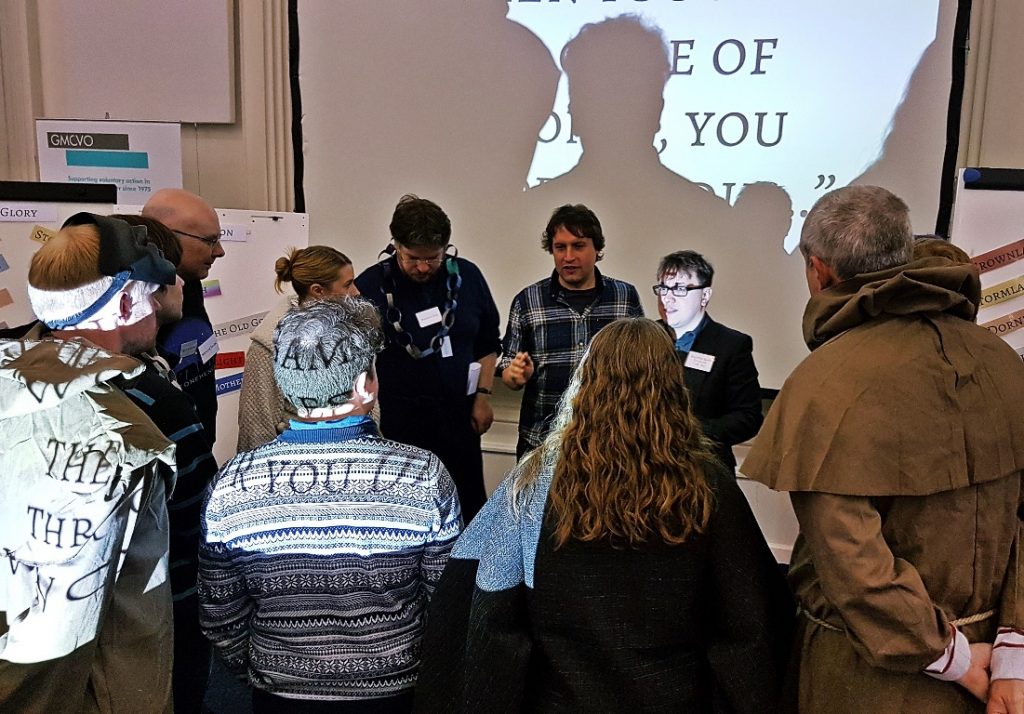Not going to lie – I love a good secret plot for my megagames. I’ve literally included at least one in every game I’ve run so far. From the anti-Targaryen Maesters at Everybody Dies 1, to the teachers being behind it all at Trope High, often it’s these secret plots that spark a lot of my interest when putting a game together.
And I’m not the only one! The Shot Heard Round The Universe featured the Krill, a mysterious alien race that turned out to be misfiring Forerunner servitors. Crisis in Elysium had spies in every team. And, of course, there’s the core of Watch The Skies, where what the aliens want is one of the big questions – usually they come in peace, but you can never be quite sure!

But there are some things to bear in mind when creating your own secret plots for your megagames. Here’s some questions you might want to ask yourself when creating one:
How big a secret is it?
You need to make sure your Control team is fully briefed on the secret, including how secret it is, who knows, and how much they can let slip to players with spy mechanics.
Secret plots are rarely interesting if they can’t come out at all, so you do need to consider the methods by which players might discover the truth. If they’re unlikely to from a roleplay point of view, consider any special investigation powers you might want to give players, or any specific events you might want to pre-stage.
Would the game be irrevocably broken if it came out in the first few turns?
If your answer is yes – it’s probably a bad plot! Megagames need to be resilient, and it’s essential to think about the potential game-breaking elements. Even if you brief your Control perfectly, it’s entirely possible that a player will overhear the wrong thing and your secret will get out sooner than expected. If that happens and your game is ruined, that’s going to be a lot of very disappointed people.
For example, say a specific team is behind the threat, and if the other players found this out they could take down that team with some semi-decent planning. This means that either the secret has to hold through 90% of the game (possible but not guaranteed) or the culprit team has to be invincible in a way that other players won’t know about until they try to take them down (unrealistic and frustrating).
Is it going to annoy or upset players?
Part of the resolution for Trope High was that the players were (nearly) all simulations. This falls into the classic “it was all a dream” trope, which was great given the setting. But no one wants to feel like their actions all day were a waste of time. While this didn’t affect the outcome too much on the day, I’ve already decided I’ll be shaking it up for Trope High: Class of 2020.
The earlier example of an invincible culprit team is another thing that is likely to annoy players. The majority of people don’t play megagames to win, and a lot of people are happy to play a role that can’t win for in-character reasons, enjoying the roleplay experience it provides. But finding out at the end of the day that you physically couldn’t win for out-of-character reasons is pretty crushing.
What will you do in the reruns?
I literally told you two secrets from my games in the opening paragraph. I knew going into both of my games that if I included a secret plot, I would need to rework it considerably for subsequent runs. Players talk, players replay games they’ve already done, and players remember.

For later runs of Everybody Dies, I actually increased the number of secret plots from one to three. This meant that a) I could reuse plots with different teams and b) players would never be sure what combo they were playing with, even if they’d heard of some of the previous runs.
Your secret plots
Go forth and create incredible elaborate secret plots. They’re a fantastic part of the megagame experience, from designer, Control and player perspectives – provided they’re done right!
Are you planning any secret plots in your upcoming megagames? Do you have any additional tips?
Others in the “How to Write a Megagame” series
Part 1: Choosing Your Concept
Part 2: Logistics
Part 3: Scoping
Part 4: Mechanics
Part 5: Briefings
Part 6: Secret Plots
Part 7: Casting
Part 8: Teams
Part 9: Control Team (coming soon)
